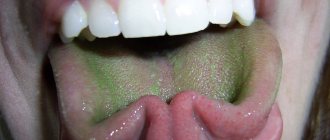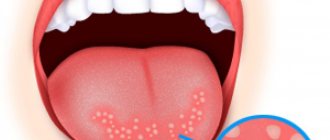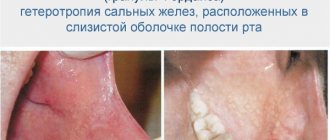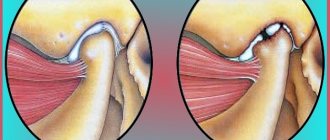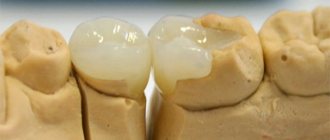Causes
The appearance of sour breath is caused by damage to the gastrointestinal tract. The most common causes of this phenomenon include:
- Gastritis. With this disease, the level of acidity of the stomach increases, as a result of which belching becomes more frequent, along with which incompletely digested food remains enter the oral cavity. The latter emit an unpleasant odor.
- Chalazia cardia (cardiospasm). The latter refers to the process of relaxation of muscle fibers located at the junction of the esophagus and stomach. With chalazia, backflow of food occurs, which leads to the appearance of a sour odor. Similar processes occur with diaphragmatic hernia.
- Gastroesophageal reflux. The disease often occurs simultaneously with gastritis.
- Peptic ulcers of the stomach and duodenum.
On this topic
- Smell
How to quickly and permanently get rid of bad breath
- Maria Konstantinovna Tevs
- September 30, 2020
Also, sour breath occurs against the background of dental pathologies:
- caries;
- stomatitis;
- gingivitis;
- periodontitis.
The reasons that provoke this phenomenon include:
- long-term use of antibiotics, hormonal and antihistamine medications (they provoke a decrease in salivation);
- nervous overstrain;
- smoking.
The nature of the smell may indicate the true cause of the problem:
- The smell of sour cabbage. It indicates a metabolic disorder in the body caused by a certain pathology.
- The smell of sour milk. Occurs when there is a sudden change in diet. The source of the odor in this case is ketones, the amount of which increases as the level of sugar in the body decreases. The latter is often due to the transition to a diet based on protein foods.
The accompanying symptoms can help identify the true cause of sour odor in an adult.
What to do?
First, you need to establish the true cause of the odor, if it is gastrointestinal diseases, metabolic disorders, diseases of the ENT organs, lungs, cancer, gall bladder, kidneys, liver or dental problems - the treatment of an unpleasant odor consists of sanitizing foci of infection or treating the underlying disease .
You can reduce discomfort and discomfort in the following ways:
- If you urgently need to reduce the unpleasant aroma, you can chew coffee beans, they will neutralize it.
- Triclosan and Chlorhexidine are antiseptics that reduce colonies of anaerobic bacteria by 80% for up to 3-12 hours. You can use rinses, toothpastes, gels containing carbamide peroxide, triclosan, cetylpyridine. You can also use diluted hydrogen peroxide or soda solution to rinse.
- In addition to your teeth, you should also thoroughly clean your tongue; for this, there are special scrapers or use the spiked pad on the back of the toothbrush
- Herbal remedies such as infusions of chamomile, alfalfa, dill, yarrow, echinacea, as well as propolis with daily mouth rinse give a good effect, in the absence of allergies to these drugs
- Essential oils, such as sage, tea tree, and clove oils, reduce the intensity of the odor by 1-2 hours
- Chewing gums have a refreshing effect, but unfortunately for a very short time and gastroenterologists do not recommend chewing them for more than 10-15 minutes.
Author:
Selezneva Valentina Anatolyevna physician-therapist
Symptoms of gastritis
With gastritis, the level of acidity in the stomach increases, which slows down the digestion of food. As a result, food residues begin to rot in the organ, causing an acidic odor.
On this topic
- Smell
How to prevent crown odor
- Olga Alexandrovna Novikova
- September 3, 2020
The course of gastritis is accompanied by the following phenomena:
- frequent belching that occurs after every meal;
- coating on the tongue of dense consistency;
- pain localized in the upper abdomen and chest;
- attacks of nausea;
- vomit with particles of undigested food;
- feeling of heaviness in the stomach;
- swelling in the left side.
An increase in the intensity of bad breath indicates the onset of chronic gastritis.
Treatment of bad breath
Drugs
To eliminate bad odor, local antiseptics can be used to eliminate bacterial inflammation of the oral mucosa.
A specialist may also prescribe broad-spectrum antibiotics, the use of which will help eliminate bacterial inflammatory processes in the mouth or paranasal sinuses. You cannot take them without a doctor's prescription.
At home
To combat unpleasant odors, you can use mint candies, chewing gum, and sprays. They make breathing cleaner, but, nevertheless, do not eliminate the cause of halitosis. Traditional recipes can also be effective:
- Mint infusion. Pour a teaspoon of mint into ¾ cup of boiling water and strain. Gargle after eating and brushing your teeth.
- Celery tincture. Pour two teaspoons of celery root into a glass of vodka, let it brew for two weeks, strain. 20 drops of tincture should be diluted in a third of a glass of water. Rinse your mouth and throat with this mixture twice a day for 7 days.
To eliminate the smell of onions and garlic, you can chew walnuts or parsley. Hot milk helps. Ordinary apples are also great for freshening your breath.
Symptoms of chalasia cardia (cardiospasm)
Chalazia is characterized by disruption of the muscles responsible for retaining food in the stomach. Their dysfunction leads to the return of acid into the esophagus.
The presence of cardiospasm is indicated by:
- nausea;
- heartburn;
- frequent belching;
- pain in the upper abdomen.
Despite the fact that chalazia is accompanied by symptoms similar to the manifestations of other pathologies of the gastrointestinal tract, it is distinguished as a separate disease and requires a different approach to treatment.
Symptoms of gastroesophageal reflux
Gastroesophageal reflux is a pathological condition of the body in which particles of undigested food are thrown back from the stomach into the esophagus. It occurs in diseases of the gastrointestinal tract. The latter cause dysfunction of the sphincter, which holds food in the stomach.
On this topic
- Smell
Why does my breath smell in the morning?
- Olga Alexandrovna Novikova
- September 3, 2020
Gastroesophageal reflux is accompanied by the following symptoms:
- belching;
- heartburn;
- nausea;
- general malaise;
- pain in the stomach area.
The appearance of bad breath with gasesophageal reflux is due to the fact that hydrochloric acid penetrates into the esophagus from the stomach. The intensity of the symptom varies throughout the day. In the morning, the acidity in the mouth reaches its maximum values, and decreases in the evening.
If there is an odor in small children there is a sour smell
The manifestation of halitosis in young children appears much less frequently than in adults. If your child has sour breath, this is a serious symptom for every parent.
Small children should only breathe cleanly. Carefully analyze whether your child always maintains oral hygiene.
For infants, of course, this is impossible, so parents must take care of their baby’s health themselves.
The appearance of an unpleasant odor in a child may be due to teething. During the teething process, a child's gums become a weak spot in which various bacteria can develop and cause inflammation.
During this period, teething is accompanied by a runny nose and cough, which prepare fertile ground for harmful bacteria.
If for some reason salivation in a child or an adult decreases, this may indicate insufficient fluid intake or stress.
A stuffy nose can also cause this problem, so in this situation you have to breathe through your mouth.
Both adults and young children produce saliva in small quantities during sleep, so in the morning there may be an unpleasant sour odor from the mouth.
Halitosis occurs due to irregularities in the child's nutrition. Small children should not eat fatty, salty, or smoked foods - these foods cause a sour smell.
Your baby's diet should include enough raw fruits, vegetables, dairy products, and greens.
A sour smell can be heard in a baby when regurgitating after drinking large quantities of milk. Here it is necessary to adjust baby food.
In rare cases, children develop gastritis, ulcers, and gastroesophageal reflux. Consulting a doctor will help you provide timely qualified assistance and conduct the necessary examination.
If your baby winces and you hear complaints about a sour taste in the mouth, watch him. Sometimes children may eat large amounts of sour candy. Can chew chewing gum for a long time.
And, as you know, chewing gum causes the production of hydrochloric acid in the stomach. Thus, hydrochloric acid enters the esophagus and directly into the baby’s mouth.
The reasons that cause a feeling of acidity may be due to sour vegetables or fruits, carbonated drinks.
Gas bubbles irritate the mucous membrane in the stomach. Acid production begins in large quantities.
Also, a sour taste appears after the baby has eaten a hearty meal and went to rest. The hydrochloric acid produced by the stomach flows into the esophagus, from where it enters the baby’s mouth.
Symptoms of an ulcer
Gastric and duodenal ulcers are asymptomatic most of the time. Signs of pathology appear when it worsens. Peptic ulcer disease is characterized by the following phenomena:
- increased acidity in the oral cavity;
- sharp pain in the abdominal area;
- frequent hiccups and belching that occur after eating;
- increased temperature ;
- general malaise;
- loss ;
- intoxication of the body.
On this topic
- Smell
10 reasons for unpleasant odor between teeth
- Olga Alexandrovna Novikova
- September 3, 2020
Peptic ulcer disease appears against the background of the active development of a colony of Heliobacter bacteria. The course of the pathological process disrupts the natural balance of microflora in the duodenum and stomach. Because of this, beneficial microorganisms die, resulting in an increase in the level of hydrochloric acid in these organs, which gradually corrodes their walls.
Often, only a sour smell from the mouth indicates the presence of stomach and duodenal ulcers.
What measures need to be taken
When faced with “sour breath”, you must be aware that chewing gum (even the most expensive ones) and sweets do not solve the problem, and more frequent and intensive brushing of your teeth will help you lose the unpleasant odor only for a short time.
Photo 2: The first thing you need to do is visit the dentist. If a specialist discovers that you have caries, gingivitis or periodontitis, you will need to undergo a course of treatment to get rid of the unpleasant odor of acid. Source: flickr (Credit Brush Freeman Via Httptexasentonet Picture).
If your dentist has not identified the above diseases in you, then you should undergo a gastrointestinal examination.
Important! If diseases such as gastritis, gastric and duodenal ulcers, gastroesophageal reflux, chalasia cardia are detected, it will be necessary to undergo a course of treatment prescribed by a specialist.
Symptoms of dental diseases
In cases where, in addition to the sour smell from the mouth, the symptoms given above are not observed, then the cause of the phenomenon in question may be dental pathologies.
The development of the latter is accompanied by the formation of foci of inflammation that affect the mucous membrane or gums. This process promotes the active proliferation of bacteria in the oral cavity, responsible for the breakdown of proteins.
Dental diseases are indicated by the presence of:
- increased sensitivity to acidic foods and temperature changes;
- pain in the oral cavity;
- swelling of the gums;
- plaque on the tongue of varying consistency and density.
An unpleasant odor coming from the mouth may be due to the oxidation of metal dental crowns.
Symptoms of diaphragmatic hernia
The esophagus at the junction with the stomachs is delimited by the diaphragm. The growth of a hernia in this area leads to the specified hole increasing in size. As a result, part of the stomach and esophagus move into the chest. In this condition, conditions are created for the return of hydrochloric acid and food debris.
On this topic
- Smell
What to do if your teeth are bleeding and you have bad breath
- Olga Alexandrovna Novikova
- August 13, 2020
The presence of a hernia can be determined by the following phenomena:
- the appearance of heartburn;
- decreased taste;
- pain localized in the chest and upper abdomen;
- difficulty breathing during the night.
Treatment of a diaphragmatic hernia is recommended in a timely manner, since in rare cases it leads to death caused by suffocation.
Diagnostic methods
In order to determine the true cause of the unpleasant odor, several tests are carried out, on the basis of which the nature and intensity of the symptom are determined. To assess these characteristics, plaque is collected from the tongue and interdental space. This test allows you to determine the level of volatile gases in the exhaled air.
Before analysis, you must refuse:
- taking antibiotics;
- spicy and smoked products;
- brushing teeth.
On this topic
- Smell
Useful tips on how to check if you have bad breath
- Maria Konstantinovna Tevs
- August 11, 2020
To confirm a preliminary diagnosis, a blood sugar test is performed. If you suspect the presence of diseases of the digestive system, the following are prescribed:
- Ultrasound;
- X-rays of light;
- fibrogastroscopy;
- colonoscopy;
- gastroduodenoscopy.
These procedures make it possible to determine the current state of the gastrointestinal tract and identify the course of pathological processes, the presence of ulcers, etc. An important condition for choosing a treatment regimen is differential diagnosis.
It is necessary to isolate the only disease that causes sour breath from:
- pathologies of the oral cavity;
- diseases of the digestive system;
- endocrine disorders.
Based on the data obtained from the results of a comprehensive examination, a treatment regimen is selected.

